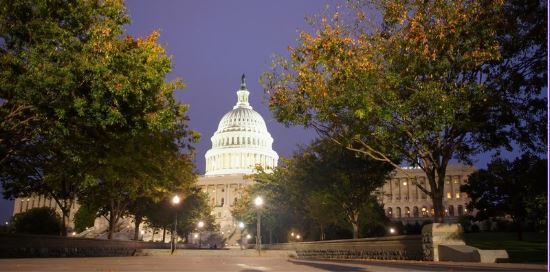The rise of executive orders under President Trump has ignited a heated discussion in Washington regarding the extent of presidential power. As the President increasingly relies on unilateral actions to advance his policies, Congress finds itself at a crossroads: should it allow the further expansion of executive authority, or should it take steps to rein in such powers? With critics from across the political spectrum expressing concerns, the debate underscores ongoing tensions surrounding the balance of power between the branches of government and the role of the legislative process in a democracy.
The Surge in Executive Orders
In recent months, President Trump has increasingly turned to executive orders to tackle a range of high-profile issues, from immigration reform to healthcare policy and deregulation. The administration defends this approach as necessary to bypass legislative gridlock, arguing that the executive branch must act decisively when Congress fails to pass laws. However, many critics believe this circumvents the democratic process. Executive orders, unlike legislation, often lack the transparency and public debate that typically accompany bills passed through Congress, denying citizens and lawmakers the opportunity to engage fully in the policy-making process.
One of the most contentious issues at the center of this debate is immigration. Trump’s executive orders targeting immigration have sparked widespread protests and prompted numerous legal challenges. Critics argue that such sweeping policy changes should be subject to debate and approval by Congress, a process that would allow for broader participation and consideration of diverse viewpoints. Bypassing Congress in this manner, critics claim, undermines the essential role of lawmakers in shaping and passing laws.
Congress Divided Over Executive Power
Congress has been sharply divided over the rise of executive orders, reflecting the increasingly polarized political landscape in Washington. Many Democratic lawmakers have raised concerns, accusing the Trump administration of exceeding its executive authority. Several have called for investigations into the legality and fairness of specific orders, particularly those involving immigration enforcement. Some have even proposed legislative measures aimed at limiting the President’s ability to issue such orders, arguing that the unchecked expansion of executive power threatens the fundamental principle of checks and balances that underpins the U.S. Constitution.
On the other hand, many Republicans have supported the use of executive orders, seeing them as a vital tool for advancing the President’s policy agenda, particularly when legislative progress has been slow or blocked. However, a growing number of GOP lawmakers are beginning to question the long-term consequences of this approach. While they acknowledge the short-term political benefits, they warn that an overreliance on executive orders sets a dangerous precedent that future presidents, regardless of political affiliation, could exploit for their own ends.
Legal and Constitutional Concerns
The frequent use of executive orders by President Trump is raising significant legal and constitutional questions. Legal experts argue that the President’s reliance on executive orders—especially in areas that have traditionally been handled by legislation—poses a challenge to the separation of powers established by the Constitution. The framers designed the system of checks and balances to prevent any one branch of government from accumulating too much power, but critics contend that the growing use of executive orders undermines this safeguard.
Several lawsuits have already been filed in response to key executive actions, particularly those related to immigration and environmental regulations. These legal battles are expected to play an increasingly important role in determining the scope and legitimacy of executive power. The courts may soon be tasked with defining the boundaries of executive authority, which could result in landmark rulings with lasting implications for the future of governance in the United States.
Potential Legislative Responses
As concerns over the expansion of executive power intensify, there is increasing pressure on Congress to act. Some lawmakers are already working on bills aimed at modifying or reversing certain executive orders, while others are looking into ways to strengthen oversight of the executive branch. A key goal of these efforts is to prevent future presidents from using executive orders as a substitute for the legislative process, thus preserving the role of Congress in shaping national policy.
One possible avenue for reform could involve the creation of more robust oversight mechanisms for executive actions. By requiring greater transparency and accountability, Congress could help ensure that executive orders are issued more thoughtfully and in accordance with constitutional principles. This could include mandating more thorough reviews of executive actions or imposing limits on their scope, particularly in areas traditionally governed by legislation.
Looking Ahead
The coming months will be crucial in determining the future trajectory of executive power in the United States. Congress must carefully navigate the delicate balance between supporting or opposing a sitting president and fulfilling its constitutional responsibility to protect the integrity of the legislative process. How lawmakers choose to address the growing concern over executive power will have significant implications not only for the future of policymaking but also for the broader structure of American democracy. The outcome of this debate will ultimately determine the extent to which executive authority is checked and balanced, ensuring that no single branch of government becomes too dominant in shaping the nation’s decisions.



